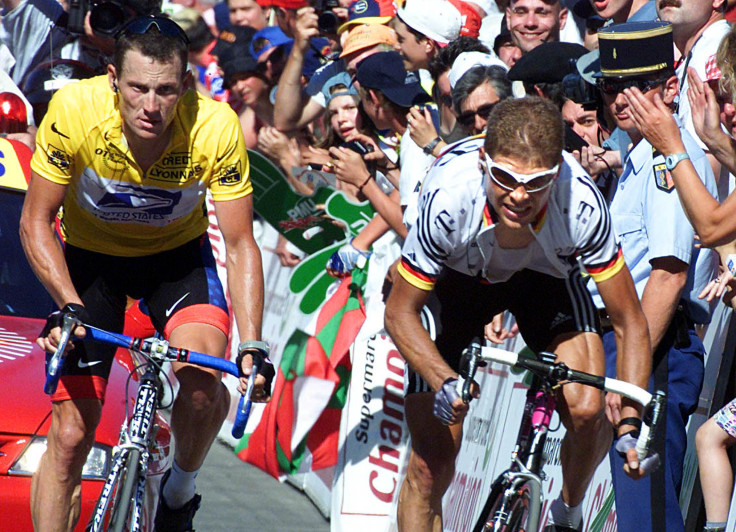Anti-Doping Report: Commission Finds Cycling Union Disregarded 'The Magnitude Of The Problem'

The Union Cycliste Internationale -- the body that governs competitive cycling -- ignored the causes that led to a pattern of doping, a report issued Sunday charged. The Cycling Independent Reform Commission said in its 227-page report the union leadership publicly disregarded "the magnitude of the problem" and implemented inadequate policies that were geared toward protecting the sport's stars.
Lance Armstrong, who won the Tour de France a record seven times (1999-2005) denied for years he took performance-enhancing drugs but finally admitted his drug use in 2012 and was stripped of his titles. The cancer survivor now owns a coffee shop in Austin, Texas.
"To have an effective anti-doping strategy, it is essential to get the right sample from the right rider at the right time and to the right laboratory. In the [commission's] view, there was not enough willingness to put such a system in place," the report said.
The commission, however, said it found no evidence Tour de Suisse paid the union to cover up evidence Armstrong was guilty of doping. It also found no evidence a $100,000 donation by Armstrong had any impact on the union's anti-doping program.
But, the commission said, the union failed to apply its own rules when it allowed Armstrong to compete in the Tour Down Under in 2009 even though he had not been adequately tested.
Despite strong evidence Armstrong engaged in doping, the union saw him as a savior for the sport following an earlier scandal as the union's leadership focused on growing the sport worldwide. Efforts to protect the sport's reputation undermined anti-doping efforts, the commission concluded.
"However, the [commission] is not suggesting that [the cycling union] leadership knowingly or deliberately allowed doping and high-profile dopers to continue within the sport knowing or suspecting them to still be doping, but rather that a lack of proper institutional checks and balances within UCI, meant that these matters were not subjected to the rigorous scrutiny and application of the rules and best practice that they should have been," the report said.
The union leadership was aware there was a doping problem before 1991 but officials portrayed it as "faulty [and surprising] behavior of a few individuals, ... not as endemic group behavior as a structural problem within its sport," the report said.
The commission recommended the cycling union work closely with governments and other authorities to fight doping, punish doctors found guilty of anti-doping violations, end public shaming from anti-doping organizations unhappy with the results of investigations, work with different countries to determine the level of doping, move to qualitative testing regimes and end 11 p.m.-6 a.m. testing windows that helps "riders who micro-dose to avoid being caught."
Other recommendations included systematic retesting, encouraging people to come forward with information and to pursue investigations as soon as allegations surface.
© Copyright IBTimes 2025. All rights reserved.






















